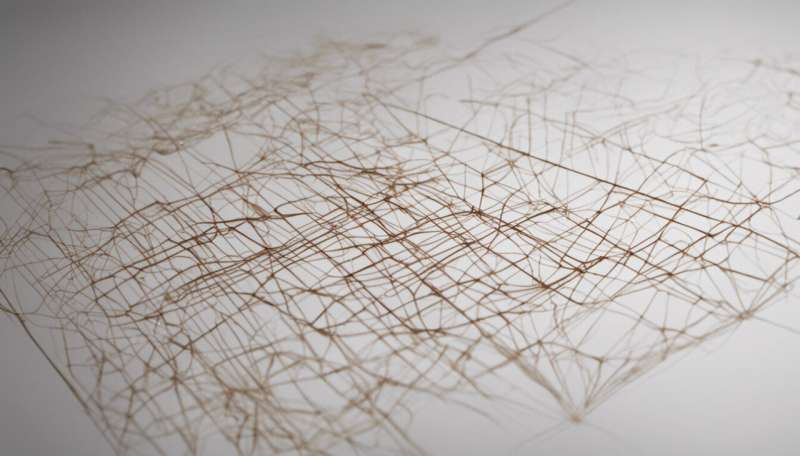Credit: AI-generated image (disclaimer)
A group based out of the Spaulding Motion Analysis Lab at Spaulding Rehabilitation Hospital published "Enabling Precision Rehabilitation Interventions Using Wearable Sensors and Machine Learning to Track Motor Recovery" in the newest issue of Nature Digital Medicine. The aim of the study is to lay the groundwork for the design of "precision rehabilitation" interventions by using wearable technologies to track the motor recovery of individuals with brain injury. The study found that the technology is suitable to accurately track motor recovery and thus allow clinicians to choose more effective interventions and to improve outcomes. The study was a collaborative effort under students and former students connected to the Motion Analysis Lab under faculty mentorship.
Paolo Bonato, Ph.D., Director of the Spaulding Motion Analysis Lab and senior author on the study said, "By providing clinicians precise data will enable them to design more effective interventions to improve the care we deliver. To have so many of our talented young scientists and researchers from our lab collaborate to create this meaningful paper is especially gratifying for all of our faculty who support our ongoing research enterprise." Bonato is also an Associate Faculty member at Harvard's Wyss Institute for Biologically Inspired Engineering.
Catherine Adans-Dester, P.T., Ph.D., a member of Dr. Bonato's team served as lead author on the manuscript. "The need to develop patient-specific interventions is apparent when one considers that clinical studies often report satisfactory motor gains only in a portion of participants, which suggests that clinical outcomes could be improved if we had better tools to develop patient-specific interventions. Data collected using wearable sensors provides clinicians with the opportunity to do so with little burden on clinicians and patients," said Dr. Adans-Dester. The approach proposed in the paper relied on machine learning-based algorithms to derive clinical score estimates from wearable sensor data collected during functional motor tasks. Sensor-based score estimates showed strong agreement with those generated by clinicians.
The results of the study demonstrated that wearable sensor data can be used to derive accurate estimates of clinical scores utilized in the clinic to capture the severity of motor impairments and the quality of upper-limb movement patterns. In the study, the upper-limb Fugl-Meyer Assessment (FMA) scale was used to generate clinical scores of the severity of motor impairments, and the Functional Ability Scale (FAS) was used to generate clinical scores of the quality of movement. Wearable sensor data (i.e., accelerometer data) was collected during the performance of eight functional motor tasks taken from the Wolf-Motor Function Test, thus providing a sample of gross arm movements and fine motor control tasks. Machine learning-based algorithms were developed to derive accurate estimates of the FMA and FAS clinical scores from the sensor data. A total of 37 study participants (16 stroke survivors and 21 traumatic brain injury survivors) participated in the study.
More information: Catherine Adans-Dester et al. Enabling precision rehabilitation interventions using wearable sensors and machine learning to track motor recovery, npj Digital Medicine (2020). DOI: 10.1038/s41746-020-00328-w
Provided by Hansjörg Wyss Institute for Biologically Inspired Engineering
























